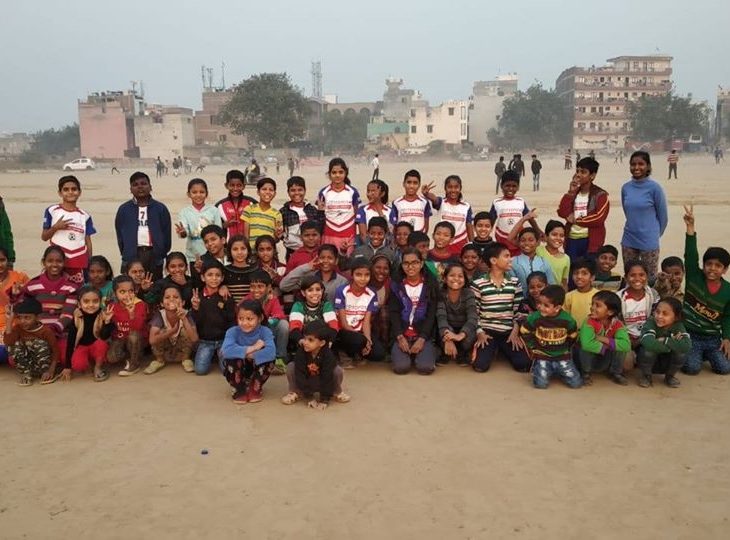How Youth from Delhi Slums Tackled Covid-19
May 28, 2020

I represent the Kutumb Foundation, a non-profit that works with more than 2,000 children and young adults across slums and villages in Delhi and Noida. For the last 18 years now, our efforts have been to expand the horizons of education by using the arts and sports to build language and leadership skills. Our work enables children to take risks in the classroom and urges them to explore, probe, ask questions and disagree. We hope to encourage the young people to be more inclusive across faith, cast and gender identities.
When Covid-19 broke out and a lockdown was announced across India, lots of people got in touch with me and my colleagues. They asked us what we were going to do to offer relief to the ones who have lost out on their daily earnings and might be struggling to make ends meet. Our initial response was clear – we aren’t a relief work organization. Given that we weren’t even allowed to go out of our homes, we felt there was little we could do. After all, the only kind of relationship our peer leaders have with their students is through football and drama.
Peer leaders, or teachers, are a primary aspect to Kutumb’s training model. They are young people who come from the same milieu as their students. They live in the same community, and most of them are old students of Kutumb. It was during one of our group chats with these peer leaders that we realized how grim the situation was for the people we serve. People living in communities where Kutumb has footprint are struggling with the sourcing of staples like flour, rice, sugar, salt, etc. Their savings are depleted, the local grocer has started black marketing ration supplies and no help has been extended from the government. Under these circumstances, we decided to give relief work a shot. This certainly seemed risky. As it is, people in these communities find the idea of social distancing a big challenge, and what we were going to do had the risk of people crowding and turning the idea of social distancing into a complete mockery.
However, what we saw was the reality of what we’ve been up to in these 18 years at Kutumb. Our young people have experienced first-hand learning in a safe space – created by football or drama – that prepared us and the young ones for life. The drama and football lessons our peer leaders and students participate in are, finally, a simulation of the challenges our lives will throw upon us that require negotiations, mitigating violence, planning and strategizing, foreseeing risks, empathy, consideration, humility and inclusion.
In the last 10 days or so, our peer leaders and their students have tabulated lists of residents in their slum and village communities –many in slums and village communities we haven’t even heard of. Our young people have coordinated with suppliers and transporters and distributed more than 500 ration kits to families that haven’t earned their daily wages since March 24. These peer leaders have used this opportunity to discuss the importance of hygiene, protection and distancing among the residents of their communities. They’ve showed nerve in front of a crowd and asked them to wait their turn. They’ve been mindful that is important to ensure all sections and factions are included so that nobody feels ignored.
If education is a process that works towards the empowerment of a young person so that she is able to reflect, learn and act from that learning, then my schooling was certainly not an act of education! It is these peer leaders and the students of Kutumb who have shown me what education can do! These young people are currently attempting to scale up their operations to ensure that no one in their city sleeps hungry. I know, that’s a long shot but they have the skills and the attitude, and they need all the support they can get from us. I am confident that this test will really bring their mettle.
Share
Related Articles
American Civic Life
American Civic Life
American Civic Life
Americans Support a High Bar for Religious Exemptions to Vaccines



